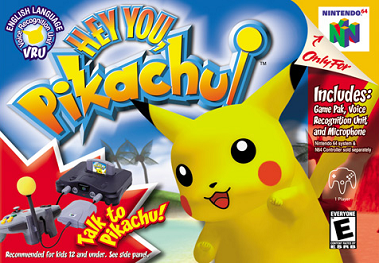E3 2013 - Gaming Generations of the Past. Gaming Aspirations of the Future.
The Electronic Entertainment Expo (E3) is set to take place June 11-13 this year. As I’m sitting here typing these words out, I’m continually looking at the corner of my laptop. I see that the hinge is giving way with pieces actually falling off. Some 6 years ago I bought this laptop for $1,100, and it’s come a long way. It seems it’s time for a replacement. Now I’m looking for a new laptop, one that can do things on an entirely different level and for years to come. With that in mind, I have to ask myself what its purpose will be. And of course the answer is pretty clear to me; gaming.
Gaming. Such a simple word with a short but incredible history to it. When you think about it, we’ve come a long way in such a short time. Do you remember your first console? If you have some years under your belt, you may or may not! Mine was the Sega Genesis. Any 90s kid like myself might remember this one. The damn thing never worked, no matter how hard I blew on the cartridges or smacked the thing. I was always playing Sonic the Hedgehog on it, though I could never beat it.
A Look into the Past...
Generation V


With every new set of consoles marks a new period, a new generation, in gaming. Innovations, advancements, and teleological leaps forward, video games have moved from the classic arcades to center stage in our very living rooms. Most 90s kids like myself grew up in the 5th generation of video game consoles. Who could ever forget the Sega Saturn (1994), PlayStation (1994), and Nintendo 64 (1996)? The fifth generation (imo) would mark the beginning of something new. Honestly, some of the most memorable childhood games came out of this and the 6th generation of consoles and computer gaming. Ahh the days of trying to connect my Pokemon Yellow to Pokemon Stadium, racing around in Diddy Kong Racing, or smashing countless boxes in Crash Bandicoot. I can never forget Hey You Pikachu!, because the game never worked for me! But still, as a kid, being able to talk to Pikachu had to be the coolest thing ever.
Generation VI

Then came along the 6th generation of gaming dominated by four of the most iconic consoles; Sega's Dreamcast (1999) Sony’s PlayStation 2 (2000), the Nintendo GameCube (2001), Microsoft’s Xbox (2001). Without a doubt in my mind do I believe that these four consoles impacted gaming in such a profound way that it seems almost ridiculous. Not only would it set the stage for the three main console companies, but it also introduced a plethora of new games that would push the boundaries of what it meant to play a video game.
The 6th generation holds a special place for me. With it, I made some of the closest friends I have today (looking at you Halo 2 slumber parties), discovered a love for music (Guitar Hero anyone?), discovered one of the coolest games I have ever played by total luck (Metroid Prime), and blew my mind to absolute nothingness (Metal Gear Solid 2: Sons of Liberty). I’m sure most have some memories in this time, hopefully all good and few bad. But when you play games like Mario Party (the Dream Crusher and Destroyer of Friendships), well, you never know.
Generation VII

The 7th generation would prove to be an interesting one to say the least, with new innovations pushing the capabilities of the lowly console. It, to me, was one of those ideas that never even seemed a reality in my time, yet when it was, felt like it should have been here earlier.
Xbox 360

Microsoft’s Xbox 360 was officially released in November of 2005, and would mark the beginning of the next generation. With the introduction of HD gaming, games would look crisp and more detailed than ever possible on previous consoles. Power would allow game developers the create complex worlds, incredible detail, and an ever engaging capability with the full use of Xbox Live. Granted the use of online gaming was made prior with the PlayStation 2 and Xbox (if earlier, I would love to know!), it seems the 360 would make online gaming not just a fancy option, but almost something of a necessity that to rid of it now would be, well, insane. Not all games even have online multiplayer, but a large number have some form of online entertainment at the least. The days of lugging over the PlayStation, Xbox or GameCube to play a game with friends would dwindle away, to be replaced by the ease and simplicity of online multiplayer. This isn’t entirely a bad thing, as no doubt it has made connecting with others a much easier task. Even so, it’s hard to admit that something, even just a little spark of the past, wasn't gone with this.
Of course if there is anything the Xbox 360 will be remembered for, no doubt it’s the one major flaw that has plagued so many users (myself included) of before; the Red Ring of Death. Not every console is perfect, as even the best have some form of flaws. But the consistent widespread commotion caused by the RRoD was so huge, it stands as one of the most recognizable technical failures of the 360. Essentially a general hardware failure, users who had the RRoD were forced to obtain a new console (unless you were handy and could “fix” it). The RRoD is easily recognized by the three blinking red lights emitted from the Xbox 360, an issue that seems to have been handled now after some huge initial failures (some blame the graphics chip, others a heat issue). Whatever the case, if you didn’t have the RRoD, you weren’t considered normal; you were considered damn lucky.
Despite a number of issues, some of the titles pushed forth by the 360 remain irreplaceable. Whether it was finishing the fight in Halo 3 or pushing new speed limits in Forza Motorsport, the 360 certainly has changed how we view online multiplayer on home consoles along with its competitors. Even though I still do not have my original 360, I still enjoy the sleek look the 360 Slim offers, sitting near my TV always at the ready should I ever want to venture forth to the Xbox community.
PlayStation 3

Sony’s PlayStation 3 has come a long way, perhaps more so than any of the other two consoles. Released in November of 2006, the PS3 was Sony’s answer to the call brought forth by the 360. Incorporating FHD (1080P) gaming, the PS3 was probably well known initially for something it had that no console had; Blu-ray. If you want to buy a Blu-ray player now, you don’t have to look far or shell out too much. But back then, some seven years ago, the idea of incorporating Blu-ray into a video game console seemed to make the PS3 the clear cut choice when it came to price (ironic as it was). Even now, having a PS3 still seems like a viable choice when choosing a Blu-ray player (bring out an extra $100-$150 and you have a new gaming console as well). Of course price is price, and times change.
Right off the bat, I do not nor have I ever owned a PS3. When moving into the next generation, the 360 was something new to me seeing as I grew up with a PS2 and missed out on the Xbox. But I still remember the initial issues the PS3 had. If there is something the PS3 suffered so horribly during its initial launch, it would have to have been the issue of price. Simply put, the price of the PS3 when it first launched was too high. With prices reaching upwards of $500-600 retail, it was outrageous when compared to earlier console prices. Even the 360 did not reach this price level, but the capabilities the PS3 had (I would have to justify a lot of in on the Blu-ray capability at the time) seemed to offer otherwise. Still, it was pretty difficult even just thinking about spending that much on a console, which might have turned a number of gamers off the console initially. A shortage of available consoles only added fuel to the fire, an issue that would plague Sony for months to come. The hacking of the PlayStation Network back in April of 2011 would damage Sony’s image greatly, and would dishearten a large number of supportive members.
Even so, the PS3 has survived and has grown. Aside from a high level of reliability (Sony seems to do well here), the PS3 can be seen as a power house of a console with huge titles that are able to meet, if not succeed, those brought forth by its two rivals. Yes the PS3 might have had a rocky start, but it itself has left its mark on the history of gaming after some seven years. I only wish I could give it its proper and respectful due, but with little personal experience, I cannot properly do so.
Nintendo Wii

When I first heard this one, I thought it was a joke. Come on now, it just sounds…so silly. Wii? Yes, Wii. While my time with the Wii might not have been as long as the 360, the memories of just obtaining it are too good to ever forget. Standing in line, waiting 24 hours just to have a chance at getting one, and doing it all with a good friend of mine? Some memories are too great to simply pass away.
Released in November of 2006, the Wii would take a radically different approach compared not only to the its competitors, but to previous consoles as well. Motion sensor would be the main rule of the Wii, where players would utilize wireless controllers (Wimote+nunchuk) as their primary tools, engaging players even further in their games. While Microsoft and Sony were focusing on some serious aspects and notions, the Wii could have been seen as the family friendly console. Just wielding the controllers already made it difficult to view anything in a dark manner, and made it feel more lighthearted and easy to get into. While not as graphically impressive as the PS3 or 360, the idea that the Wii presented, combined with the resounding reputation of Nintendo and the affordable price, made it a worthy competitor.
Perhaps this was the biggest “flaw” of the Wii. If you were looking for blockbuster titles with serious/mature games, the Wii offered very few in this department. While graphics aren’t everything, the fact the Wii initially did not support HD gaming was something that might have helped with the fight against Sony and Microsoft. Not only that, motion sensing was and still is a bit iffy. Some games worked well with the notion, but others suffered from it. Depending on positioning, a lack of space when using the Wii would have hampered game play experience significantly or at the least reduced the effect it was supposed to have. Standing up and using a slashing motion with the Wiimote isn’t quite the same as simply sitting and doing the same thing. If you didn’t have the space, using the Wii as compared to other consoles might have proven to have been a bigger hassle than necessary. Of course, there was the issue of the strap of the Wiimote initially being too weak and causing a lot of TVs to meet their end, but that's for another day.
To me it seemed that the Wii would fizzle away compared to the power the PS3 and 360 came packing with, but time has proven this wrong. Nintendo just seems to get it right when creating something fun, but coming from a company that is recognized by Link, Mario, Pikachu and other classic figures and games that remain timeless, this shouldn’t be that much of a surprise. The Wii offered a totally different approach to gaming with the focus on motion sensor, a pretty bold step compared to previous targeted innovations. It might not be new, but gaming with motion sensor on a home console was made bigger and more known with the Wii. With fantastic adventures on grand scales, the Wii, along with Nintendo, have made their mark well known. Sometimes you don't need top end graphics; all you need is a good story.
PC Gaming
While the focus has been on consoles, to not include PC gaming, especially today, would be a pretty silly thing to do.
Compared to the consoles, PC gaming offers something so very appealing to gamers; possibility and freedom. PC gaming allows for almost total individuality, where what you put forth is what you get out (and then some). This, to me, is one of the greatest strengths and one of the greatest flaws of PC gaming. Possibility adds forth complexity. If you know what you’re doing and why, you will be fine. If you do not, things get messy.
What you put forth in a PC is what you will get. Unlike a console, which is set at a pretty much fixed cost, one issue of PC gaming revolves around price. Of course, this can easily be countered with the knowledge of knowing what to look for and why, but if one does not have this knowledge, then what? How long would it take for one to understand what they need to look for? With total individuality means that what one person needs will not be equal to everyone else. One must set forth a budget, and one must work to meet that budget by researching around and determining what is necessary to meet their gaming demands. Again, if you know what you’re doing this point is null, but those first stepping into PC gaming can find the task daunting. More so than a console, it’s an investment (will you trash in a few years or buy something you will upgrade later on?).
Complexity aside, PC gaming allows one to not just game, but to do other things as well seamlessly. After all, at the end of the day a gaming laptop/desktop is still a computer. Game prices are also a huge advantage to PC gaming. Steam Sales can make it so that even if every Friday was Black Friday, you would still save more (probably way more) on PC gaming. Buying games at a fraction of their price compared to retail is a very nice addition, and the ability to do it all from the comfort of your home only makes it better. Forget lugging around a console with controllers, accessories, and countless disks. Hundreds of thousands games from just about every generation are easily at your fingertips. One also has the ability to make a game his own. Mods can make even a simple game something much more, and provide limitless possibility and infinite creativity.
... A Gaze at the Future

And so here we are, residing in the 7th generation but quickly approaching the 8th. Nintendo seems to be leading this next generation with the Wii U, but Sony’s PlayStation 4 and Microsoft’s Xbox One will soon come along.
To say there are mixed opinions about the PS4 and Xbox One in particular would be an understatement. Whatever the case may be, from the shitstorms created to the bar maybe being too high to meet, E3 this year is going to be different. I do not know whether one of the consoles will fall short and crash, or whether how we view gaming and our role in it will change for the better. I don’t know if the annoying fanboys from “Glorious PC Gaming Master Race” to “PS4life” will finally meet their end. Maybe we will be totally surprised and blown away, or maybe one of the big three will fizzle and die away. Maybe the move to PC gaming is becoming something more than an option. Maybe it might even be seen as the next logical course.
Then again, maybe the consoles have something in store for us that we will have to wait and see. Maybe this is just the beginning.

We have come a long way. From simple bit games to full blown worlds that rival reality, gaming has become much more than just something to pass the time by. It’s a field where people can make even their grandest dreams a reality, where worlds and stories the stuff of legends are created, and where memories worth remembering are made. It allows us to live out a different life, even if just for a moment, and to share that special feeling with millions around the world. Whether you own it on a PC or console, we all share the title of gamer.
While I do not know what’s going to happen on and after E3, I do know this. They’re gonna have to rip the controller and mouse out of my hands, because I’m gonna keep gaming until the day I die!

-
 4
4




4 Comments
Recommended Comments
Create an account or sign in to comment
You need to be a member in order to leave a comment
Create an account
Sign up for a new account in our community. It's easy!
Join the herd!Sign in
Already have an account? Sign in here.
Sign In Now